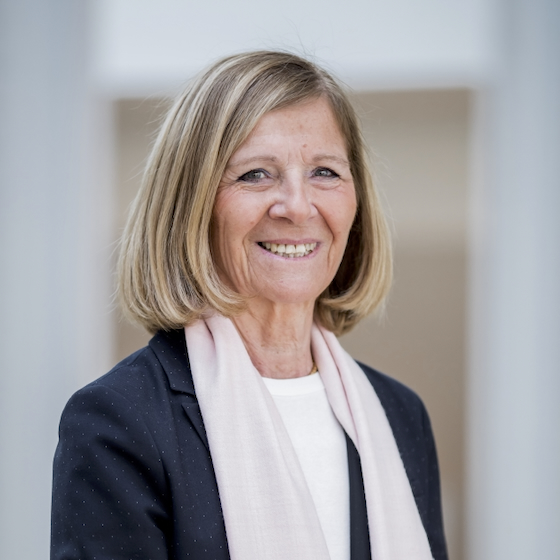
Pascale Cossart, PhD
Pascale Cossart has focused her work on infectious diseases. She is internationally known for pioneering a field which had remained unexplored until the late 1980’s and for which she coined the name Cellular Microbiology. This discipline combines cell biology, molecular biology and genetics to investigate host-pathogen interactions at the molecular and cellular levels, i.e. to unravel the virulence mechanisms taking place during infections, in order to design new ways to combat them. This discipline using microbes also unveils key issues in cell biology.
For her studies Pascale Cossart used the bacterium Listeria monocytogenes, a food-borne pathogen responsible for gastroenteritis, meningoencephalitis and premature abortions in pregnant women. She succeeded in raising Listeria to the rank of a model system by combining cellular microbiology with genomics and post genomics. She discovered a series of so far unknown strategies used by bacteria to enter into non-phagocytic cells and/or to counteract the whole arsenal of host cell defenses. Among her breakthrough achievements, one can cite the discovery of the bacterial surface protein ActA which has been instrumental to identify the role of its cellular ligand the Arp3 complex in bacterial but also cellular actin-based motility. She discovered the first RNA thermosensor that controls virulence gene expression at high temperatures. She was among the first to report previously unknown histone modifications and other epigenetic events occurring during bacterial infections of mammallian cells. She highlighted a role for mitochondrial fragmentation during infection. She also unveiled the molecules and the mechanisms underlying the species-specific crossing of the intestinal and placental barriers by Listeria monocytogenes. Her work has led to an unprecedented description of a bacterial infection and deeply changed our views on the molecular and cellular mechanisms underlying bacterial infections.
Her contributions have been recognized by numerous international prizes including the L’Oréal/UNESCO award (1998), the Lounsbery prize(1998), the Robert Koch prize(2007), the Jeantet prize (2008), the Balzan prize (2013), the Heinrich Wieland prize (2018), the FEMS-Lwoff award (2018), and the Selman Waksman award in microbiology (2021). She is an elected member of several academies including the National Academy of Sciences (NAS) and National Academy of Medicine( NAM), the Royal Society in the UK, and the Leopoldina in Germany. An elected member of the French Academy of Sciences, Dr Cossart was secrétaire perpétuel there from 2016 to 2022. She was a scientific visitor at EMBL (European Molecular Biology Laboratory) in Heidelberg in 2021 and 2022.
Pascale Cossart is a strong advocate for microbiology and has organized many international meetings, conferences and courses, including the famous Spetses international course in microbiology that she has run for 20 years. She has written three books for the public, one of which has been translated into English and edited by the American Society of Microbiology (2018) and is entitled “The new Microbiology: from Microbiomes to CRISPR.”